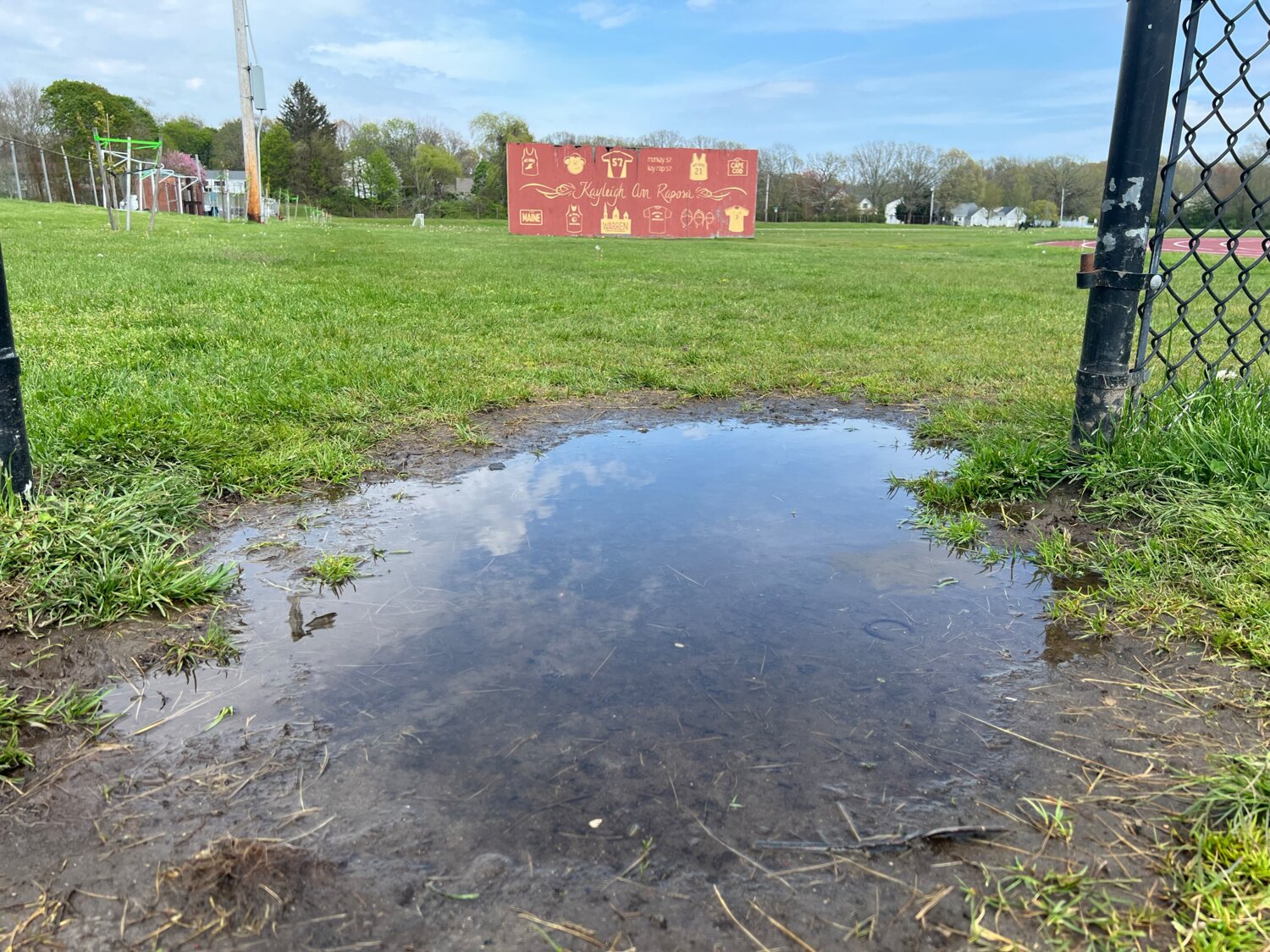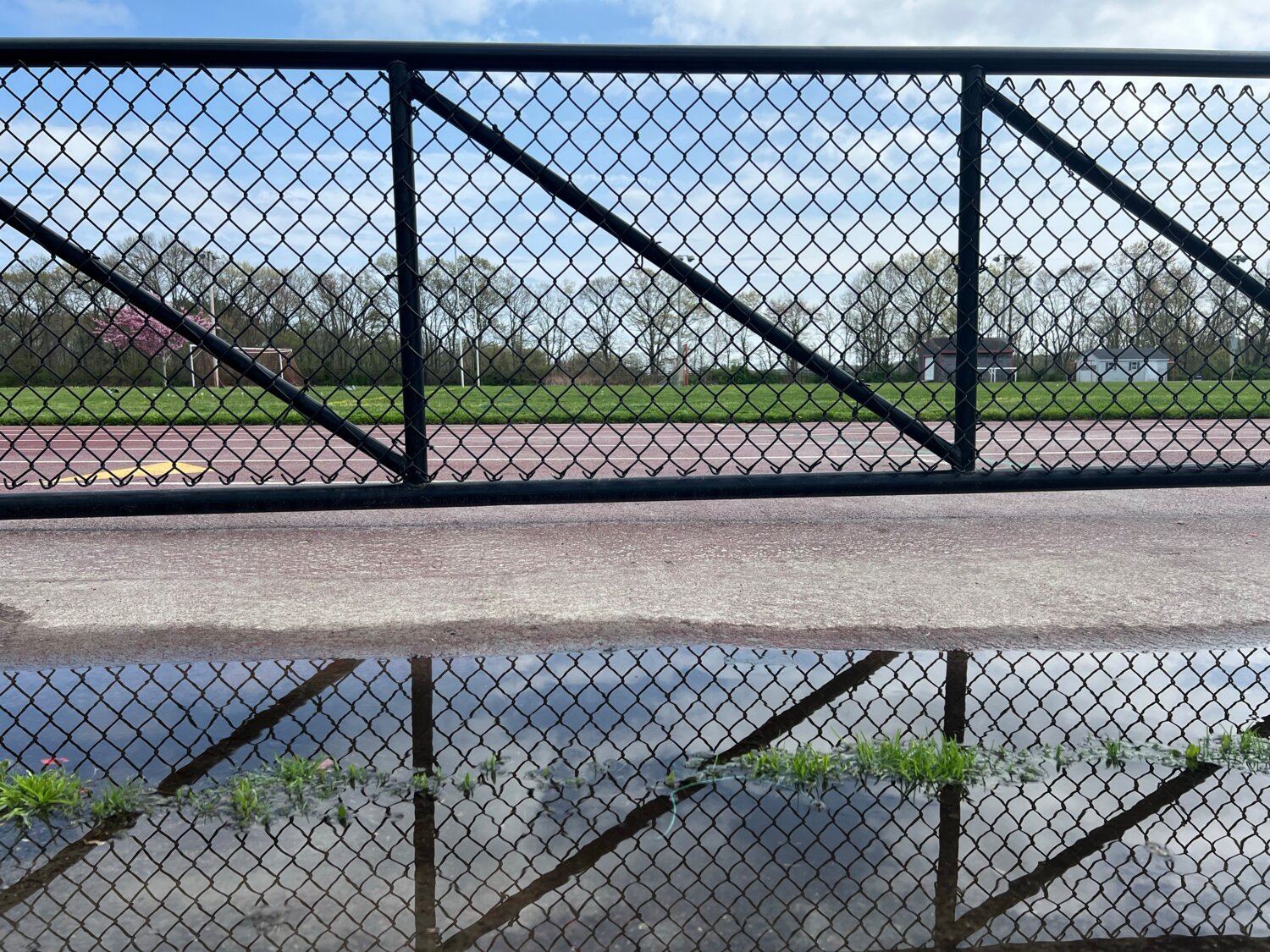Mother Nature – Local sports’ most formidable rivalry
As the climate worsens, the adverse effects felt by local sports teams will only increase, putting these community-strengthening programs at risk.
This item is available in full to subscribers.
Please log in to continue |
Register to post eventsIf you'd like to post an event to our calendar, you can create a free account by clicking here. Note that free accounts do not have access to our subscriber-only content. |
Day pass subscribers
Are you a day pass subscriber who needs to log in? Click here to continue.
Mother Nature – Local sports’ most formidable rivalry
While research has shown that Rhode Island’s climate is getting hotter, it has also been revealed to be getting wetter, windier and more unpredictable. And as our climate undergoes these changes, local sports teams across the region are caught in the crossfire.
Rhode Island has never been known for predictable weather throughout the year. It is part of the prevailing westerlies, a belt of air movement that influences precipitation and impacts wind strength. For residents, this means that there is a “roughly twice-weekly alternation from fair to cloudy or stormy weather, usually attended by abrupt changes in temperature, moisture, sunshine, wind direction and speed,” as the Rhode Island Department of Environmental Management reports in its climate overview of the state.
Recently, however, data from experts and the anecdotal experiences of locals seem to indicate that incidents of severe weather are becoming more common, and the effects are becoming apparent in much more tangible ways.
“Last summer, it rained so much,” Director of the Warren Parks and Recreation Department, Tara Thibaudeau, lamented, “I felt like we were going to build an ark. But the summer before, there was a drought. We had no rain, and everything was dry.”
A severe combination of water and wind
For local sports teams, the effects of climate change have been salient; more than just a concept in a scientific study — it’s been something to deal with on a day-to-day basis.
“We have had substantial amounts of rainouts in the last few years,” East Bay Warriors football coach Mike Oliver said. “Maybe 20 percent of our games over the last two seasons have had to be moved. Rainfall has definitely had a substantial impact.”
The data backs up Oliver’s assessment. Precipitation in Rhode Island has surged significantly in recent years. Since 1984, annual rainfall has increased by between 0.4 and 0.7 inches per decade, according to the 2017 State of Narragansett Bay Technical Report. And unfortunately, these increases haven’t simply come in the form of drizzles. Over the last century, the intensity of rainfall has also risen, “with a 71 percent increase in the annual amount of precipitation falling in heavy events.”
As a result, youth sports across the region have suffered.
“We've had years where it would rain so hard that the fields would get flooded, and we had to just call off the game and then pick it up at some other point in time,” Mt. Hope Softball Coach Donald Silva explained. “More than one time, we couldn't get on the field until the day before our first game because of snow and rain. It’s been really bad.”
For many teams, the tumultuous weather has become a constant companion, and now factors into weekly scheduling.
“Football is really played in any weather, so, traditionally, we wouldn’t be canceling practices or moving games for rain,” Oliver stated. “But it has gotten to such a substantial point of saturation that if we don’t, we have severe adverse effects.”
Normally, the team has a set schedule in which they practice three times a week, Oliver said. But over the past two seasons, he has had to add a “make-up day” to account for the times the team has to cancel designated practices due to rain. “Other than flexibility and schedule, there’s really nothing we can do,” he continued.
The problem isn’t going away on its own
What is worse, the surge in rain is unlikely to stop anytime soon. In 2016, the University of Massachusetts’ Climate System Research Center developed a series of climate prediction models for both Rhode Island and Massachusetts. Their estimations project that by 2100, precipitation will increase by up to three inches. In conjunction with heightened rainfall, elevated temperatures will transform snowy winter lands into swamps, as more and more snow will fall in the form of liquid water.
“I’ve been coaching for so long that I remember times where we couldn’t get on the field because it was snow covered,” Silva reflected. But now, he said, it hardly snows anymore and the biggest issues are rain and wind. “I've seen more wind now than I've ever experienced in the past. Some of the wind storms we’ve had this year have been really, really tough — at times with 67 mile an hour winds. I don’t remember it ever being that bad in the past.”
Proving this point, a 2019 report by the journal Nature Climate Change found that wind averages have been rising since 2010. “In less than a decade, the global average wind speed has increased from about 7 mph to about 7.4 mph,” it reports — a nearly 6 percent elevation.
For local teams, the dual forces of rain and wind have made outdoor practices unpleasant at best and unfeasible at worst. “One Spring, we had to do all of our practices inside the gym,” Silva said. “That just isn't the best environment in the world because you can’t do a lot of things.”
However, not all sports have that luxury.
“We have to work around the weather and keep the ultimate field condition in mind,” Oliver explained. “If we have rain coming in multiple days in a row and it’s going to be substantial and we tear that up, the kids are going to be slipping and sliding for the next six weeks. That’s when you could worry about a potential injury.”
But Warren has not just been sitting idly by. In 2018, the town conducted a needs assessment of its 12 recreational properties. Publishing its findings in the Recreation and Parks Master Plan, the town found that there are “serious drainage issues at the fields” and that many “fields are prone to flooding and are wet in the spring”.
To mitigate these issues, the town outlined several measures it can take, such as renovating Recreation Park’s “existing baseball and softball fields … with root zone mix and a sub-drainage system.” In addition to improving water runoff, on certain fields the town has replaced the turf itself to accommodate increased precipitation.
“We just redid the softball field at Jamiel’s Park,” Thibaudeau said, utilizing a mix that absorbs water better. And when renovation wasn’t enough, the town resorted to acquisition. Thibeaudau explained that the purchases were made “so that when other fields get flooded, we can utilize those new spaces” instead.
For years, the vigor of Warren’s recreation department has been one of its greatest assets.
“For a small town of 10,000 people, we have a lot of really strong youth sports programs,” Thibaudeau boasted. “I have six children, myself, and they’ve all been active in the youth scene, because recreation strengthens your community.”
Still, the road ahead is long, and likely to be rainy. As the climate worsens, the adverse effects felt by local sports teams will only increase, putting these community-strengthening programs at risk. If they are to survive, it will take the town’s combined efforts to rally.
Lydell Dyer is a student at Brown University who authored this piece as a part of “Writing Climate, Writing Community,” a class instructed by Kate Schapira, a Senior Lecturer in English and nonfiction writing.









